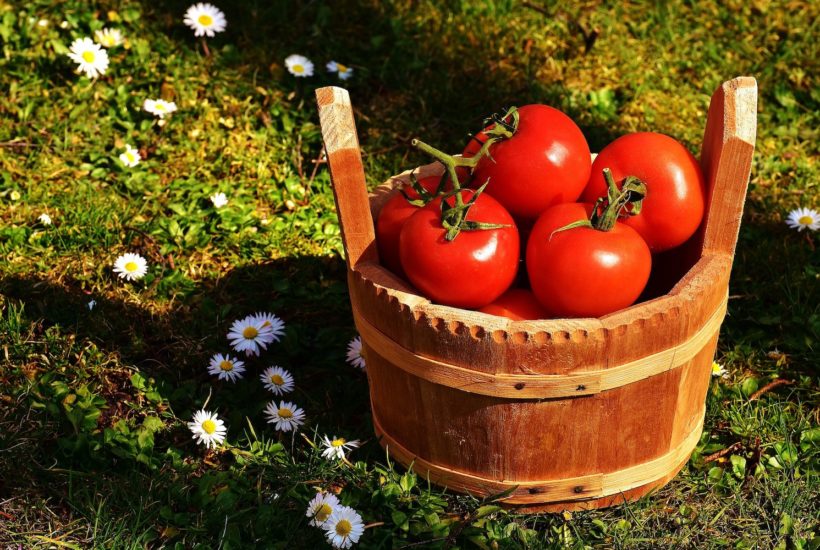Featured
Princes Industrie Alimentari enhances the Apulian tomato supply chain
Princes, an international Food & Beverage group, with a strong focus on economic, social and environmental sustainability, aims to enhance the Capitanata area by working with Apulian tomatoes grown with the highest international certifications. The Apulian tomato supply chain alone contributes about 30% to the entire volume of Italian industrial tomatoes.

Among the new features of the 2020 tomato campaign: traceability with Blockchain extended to 100% of PIA production to increase the competitiveness of Italian agricultural excellence. In addition, it is used to achieve savings of over $1,170 (€1,000) per hectare thanks to the Ecofert project in favor of the environmental sustainability of the supply chain.
It renews and strengthens the commitment of Princes Industrie Alimentari, the company that manages one of the largest tomato processing plants in Europe in Foggia, in promoting innovation, legality and transparency along the entire Apulian tomato supply chain, a symbol of excellence of agrifood Made in Italy.
Find out more about the use of Blockchain and the Ecofert project and read the latest business news with our companion app, Born2Invest.
ESG criteria is given high importance
By implementing traceability with Blockchain and keeping the use of water, nitrogen and pesticides in the processing of the fields under control, the project aims to support the Italian economy, encouraging its recovery and promoting the development of local farming communities.
These are the new features of the 2020 campaign aimed at enhancing and increasing the competitiveness of the Apulian tomato supply chain, which alone contributes about 30% to the entire volume of Italian industrial tomatoes.
Princes, an international Food & Beverage group, with a strong focus on economic, social and environmental sustainability, aims to enhance the Capitanata area by working with Apulian tomatoes grown with the highest international certifications in terms of ethical work and promoting membership of the Quality Agricultural Work Network. This is a theme that also identifies the prospects for development under the ESG logic: Environmental Social Governance.
“Today we not only confirm our commitment to guarantee the sustainable future of the entire sector, but we want to take on the responsibility of enhancing the value of Made in Italy throughout the world in order to contribute to the recovery of the country. That can be done also thanks to the professional skills, technological innovations, and agro-food excellence that the Apulian territory offers us,” commented Gianmarco Laviola, CEO of Princes Industrie Alimentari.
Traceability and sustainability in the tomato supply chain
On the one hand, there is the tomato traceability project, realized with blockchain technology and developed with Coldiretti, which will be extended to 100% of PIA production. This will provide a complete guarantee in terms of origin, transport and processing, increasing the protection of product quality, simplification of transactions and transparency of pricing. The entire path of the tomato, from the field of the agricultural company to the shelves of the most important international retailers, will be entirely traced.
On the other hand, the Ecofert project, developed in partnership with Princes and the Agronomic Department of the University of Foggia, places the Capitanata at the forefront in terms of environmental sustainability, making it possible to reduce the consumption of irrigation water and nitrogen with economic benefits for farms.
In 2019, Ecofert was extended to about 650 cultivated hectares, allowing a reduction of about 1 million cubic meters of water and 6 thousand kg of nitrogen, equal to a saving of about $1,290/ $1,640 (€1,100/€1,400) per hectare. The project will be extended to all PIA partner farmers in the next campaign.
__
(Featured image by Alexas_Fotos via Pixabay)
DISCLAIMER: This article was written by a third party contributor and does not reflect the opinion of Born2Invest, its management, staff or its associates. Please review our disclaimer for more information.
This article may include forward-looking statements. These forward-looking statements generally are identified by the words “believe,” “project,” “estimate,” “become,” “plan,” “will,” and similar expressions. These forward-looking statements involve known and unknown risks as well as uncertainties, including those discussed in the following cautionary statements and elsewhere in this article and on this site. Although the Company may believe that its expectations are based on reasonable assumptions, the actual results that the Company may achieve may differ materially from any forward-looking statements, which reflect the opinions of the management of the Company only as of the date hereof. Additionally, please make sure to read these important disclosures.
First published in AGRIFOOD.TECH, a third-party contributor translated and adapted the article from the original. In case of discrepancy, the original will prevail.
Although we made reasonable efforts to provide accurate translations, some parts may be incorrect. Born2Invest assumes no responsibility for errors, omissions or ambiguities in the translations provided on this website. Any person or entity relying on translated content does so at their own risk. Born2Invest is not responsible for losses caused by such reliance on the accuracy or reliability of translated information. If you wish to report an error or inaccuracy in the translation, we encourage you to contact us.

-

 Fintech2 weeks ago
Fintech2 weeks agoDruo Doubles Processed Volume and Targets Global Expansion by 2026
-

 Business14 hours ago
Business14 hours agoDow Jones Stalls Near Record Highs as Inflation-Fueled Rally Awaits Next Move
-

 Business1 week ago
Business1 week agoTopRanked.io Weekly Affiliate Digest: What’s Hot in Affiliate Marketing [Health Trader Affiliate Program Review]
-

 Africa6 days ago
Africa6 days agoAir Algérie Expands African Partnerships























